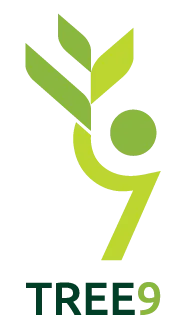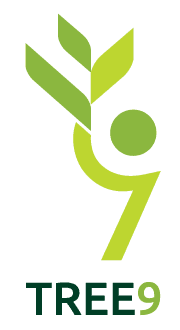The digital workspace revolution has transformed creative industries, with 94% of hiring managers now actively seeking remote talent. For skilled professionals in visual storytelling fields, this shift unlocks unprecedented access to global projects and flexible schedules. But this freedom comes with new challenges – the FBI reports victims lost $3,000 on average to employment fraud since 2019.
Creative roles like visual content creation attract both genuine employers and sophisticated scammers. Upwork’s research shows over half of American workers transitioned to remote positions during recent years, creating a fertile ground for deceptive practices. Your ability to distinguish real opportunities from fraudulent schemes becomes critical in this environment.
Successful navigation requires understanding two parallel trends: the growing demand for digital media expertise and the evolving tactics used to exploit job seekers. While platforms connect talent with clients worldwide, they also host misleading listings that target enthusiastic creatives. Developing a strategic approach helps secure rewarding positions while avoiding financial pitfalls.
This guide focuses on practical methods to verify employers and recognize warning signs specific to media production roles. You’ll learn how established professionals protect their interests while building sustainable careers in this dynamic sector. The strategies shared here combine industry insights with real-world data to empower your search for authentic creative partnerships.
Understanding Remote Work Trends in 2025
The workplace transformation reshaping global industries has reached a pivotal point. By 2025, 72% of creative professionals will operate outside traditional offices, according to FlexJobs research. This evolution creates new possibilities for skilled individuals ready to adapt to modern workflows.

Rise of Flexible Work Models
Geographic barriers no longer define career potential. Major companies now source talent globally, with video editing roles leading this shift. You’ll notice increased project diversity as organizations prioritize output over physical presence. Platforms like Frame.io allow real-time collaboration, letting you refine content with clients in Tokyo or Toronto before lunch.
Collaboration Tools Driving Change
Advanced tech solutions make distributed teams more effective than ever. Cloud-based editing suites and AI-assisted review systems eliminate traditional bottlenecks. Your ability to deliver polished work across time zones becomes a career accelerator in this landscape.
Productivity metrics reveal why this growth continues: remote creatives complete projects 34% faster than office-bound peers. This efficiency boost explains why 89% of hiring managers plan to expand their virtual teams through 2026. As the industry evolves, your adaptability becomes your greatest asset.
Recognizing Red Flags and Avoiding Remote Job Scams
Securing authentic creative roles requires sharp awareness of modern fraud tactics. Scammers often mirror professional opportunities while hiding financial traps. Knowing what separates genuine offers from deceptive ones protects your time and resources.

Common Scam Indicators to Watch Out For
Unusual payment requests signal trouble. Legitimate companies never ask for upfront fees for equipment or training. If a recruiter mentions “setup costs” or “starter kits,” consider it a bright warning sign.
Vague job descriptions with inflated earnings claims should raise alarms. Real postings specify editing tasks, required skills, and project expectations. Pressure to act immediately often hides malicious intent – valid opportunities allow time for research.
Verifying Employer Details and Company Background
Always cross-check contact information. Official company emails match their domain, not generic services like Gmail. Search LinkedIn for the hiring manager’s profile and verify their connection to the organization.
Thorough research reveals inconsistencies. Check the firm’s website for team bios, client portfolios, and physical addresses. Employee reviews on Glassdoor or Indeed provide insider perspectives on workplace legitimacy.
Trust your instincts when something feels off. Scammers exploit urgency, but patience uncovers truth. Combine digital verification with direct outreach to confirm role details before sharing sensitive data.
Securing Authentic Creative Partnerships in a Distributed World
Identifying trustworthy positions in creative fields demands a methodical strategy. Specialized platforms filter opportunities through rigorous verification processes, saving you hours of sifting through unreliable listings. FlexJobs and Remote.co maintain strict quality controls, while We Work Remotely connects professionals with vetted tech and media roles.
Strategic Verification Process
Always cross-reference employer details across three sources: official websites, LinkedIn profiles, and independent review platforms. Legitimate postings specify exact software requirements like Premiere Pro expertise or DaVinci Resolve workflows. Watch for salary ranges aligning with industry standards – unrealistic figures often signal deceptive offers.
Application Safety Protocols
Initiate contact through company portals rather than personal email addresses. Reputable organizations never request banking details during initial screenings. Maintain detailed records of all communications to spot inconsistencies in project descriptions or hiring timelines.
Patience proves vital when evaluating opportunities. Authentic creative roles typically involve multiple interview stages and portfolio reviews. Trust platforms with established screening processes, and remember: thorough verification today prevents costly mistakes tomorrow.
Optimizing Your Remote Staffing Solutions with Tree 9
Modern creative teams require staffing strategies that match their dynamic needs. Tree 9 delivers specialized solutions for businesses needing skilled professionals in advertising and software development. Our approach removes traditional recruitment barriers while maintaining quality standards.
Cost-Efficient Solutions for Advertising Agencies and Software Companies
Advertising firms and tech companies save 40% on average using our vetted talent network. We handle time-consuming tasks like skills assessments and background checks, letting your team focus on core projects. Flexible engagement models adapt to seasonal workloads or long-term collaborations.
Tree 9’s pre-screened professionals bring expertise in social media campaigns and technical workflows. You avoid costly mismatches through our rigorous matching process that evaluates both technical skills and team compatibility.
Minimizing Hiring Hassles with Expert Remote Teams
Your hiring manager gains time-saving tools for onboarding and project management. Our platform provides real-time performance tracking and streamlined communication channels. Teams integrate seamlessly with your existing tools, from Adobe Suite to GitHub repositories.
Connect with our specialists through email at [email protected] or via our LinkedIn profile. We maintain transparent pricing with no hidden fees, ensuring predictable budgeting for your creative operations.
Crafting an Effective Remote Job Application
Standing out in competitive creative fields requires applications that demonstrate both technical skill and self-direction. Hiring managers review hundreds of profiles weekly, so your materials must immediately showcase value through specific achievements and tool proficiency.
Tailoring Your Resume and Cover Letter
Focus on quantifiable results from past roles. Instead of listing “video editing tasks,” state: “Cut client revision cycles by 40% using Frame.io annotations.” Highlight collaboration tools like Asana or Trello that prove your remote readiness.
Customize each cover letter to address the company’s current projects. Reference their recent campaign or brand voice to show genuine interest. This approach positions you as a solutions-focused candidate rather than a generic applicant.
Mastering Online Interview Best Practices
Technical glitches can derail strong candidates. Conduct speed tests and practice screen-sharing your portfolio beforehand. Use natural lighting and a neutral background to maintain professional focus during conversations.
Prepare stories that illustrate problem-solving in distributed teams. For example: “I coordinated with 3 time zones to deliver a product launch video 2 days early.” These narratives demonstrate communication skills and adaptability – critical traits for remote success.
Leveraging Social Media and Job Boards for Remote Opportunities
Professional networks and specialized platforms have become essential tools for discovering creative roles. Over 65% of hiring managers now prioritize social channels when sourcing talent, making strategic platform use critical for career growth. Focused engagement helps you cut through noise while maintaining security in your search.
Utilizing Platforms Such as LinkedIn and Indeed
LinkedIn’s advanced filters let you target opportunities matching your skills and location preferences. Set alerts for “video production” or “creative content” roles while checking company pages for authenticity markers. Verified employee profiles and project portfolios help separate real postings from deceptive ones.
Indeed’s remote job filter streamlines searches by experience level and salary range. Combine this with Glassdoor reviews to assess workplace culture before applying. Always cross-reference listings with official company sites to confirm details.
Building a Strong Professional Network Online
Follow industry leaders and creative agencies sharing media roles in your feed. Engage thoughtfully by commenting on project announcements or sharing relevant articles. This positions you as a knowledgeable professional while expanding your visibility.
Showcase your best work through platforms like Behance or Vimeo links in your bio. Recruiters often review these portfolios before initiating contact. Regular updates demonstrating new techniques or completed projects keep your profile fresh in algorithm feeds.
Join niche communities focused on creative careers, but verify each lead through multiple channels. Authentic partnerships emerge when combining platform tools with proactive relationship-building.
Building a Secure and Sustainable Remote Career
The future of professional success lies in strategic skill development and market awareness. Thriving in distributed teams demands more than technical prowess – it requires deliberate planning to future-proof your value proposition.
Developing In-Demand Skills and Gaining Certifications
Master emerging tools like AI-assisted editing suites and real-time collaboration platforms. Employers value professionals who combine technical expertise with certifications in cloud workflows or cybersecurity. Continuous learning keeps you ahead in fields like software development and virtual education – sectors projected to grow 28% by 2026.
Long-Term Growth Strategies in the Evolving Market
Align your development with industry shifts through quarterly skill audits. Track market trends using resources like LinkedIn Learning’s annual reports. Specialize in niche areas where demand outpaces supply, such as interactive media design or AI-powered content optimization.
Build relationships with business leaders through virtual industry events and collaborative projects. Sustainable careers emerge when technical capabilities meet strategic networking – a formula that ensures relevance regardless of workplace evolution.



